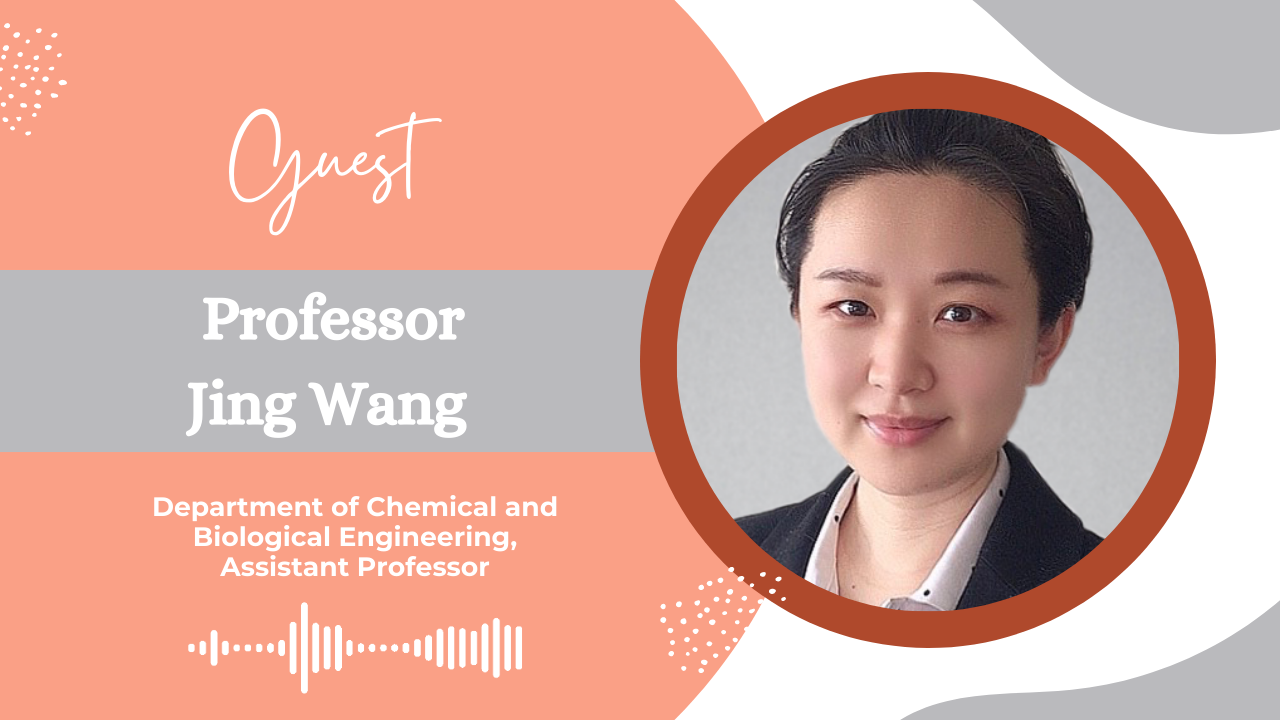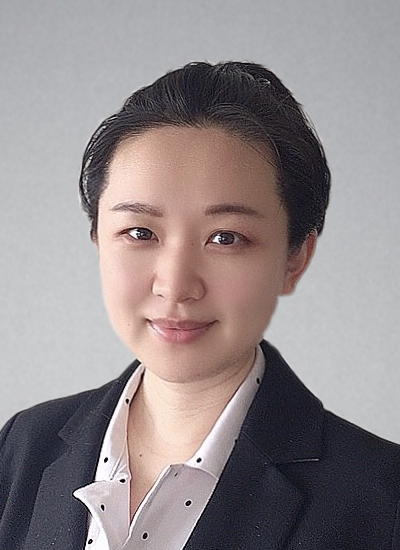Dr. Jing Wang
Unveiling Pathways: Inspiring Insights from Prof. Jing Wang’s Voyage in Biomedical Engineering
Professor Jing Wang, an accomplished figure in the field of biomedical engineering, whose journey traverses continents and academic milestones. Having completed her Ph.D. outside the US, she embarked on a trajectory that led her to prestigious postdoctoral roles at Duke University and the University of Michigan before assuming the mantle of Assistant Professor at Iowa State University in 2022. With a background rooted in medical engineering and a passion for cancer studies, Professor Wang’s desire to create solutions with translational value propelled her to the forefront of her field.
Her trajectory highlights her tenacity in pursuing knowledge across borders and contributing to the realm of biomedical engineering. Her affinity for biology and her dedication to practical applications echo her commitment to making a tangible difference in the world.
She acknowledges the challenges faced by Asian women faculty members in STEM, particularly in balancing professional aspirations with familial responsibilities. Despite these challenges, she remains hopeful, citing supportive policies and benefits that aid in managing these demands.
While gender disparities persist in collaboration dynamics, she finds inspiration in successful female faculty members who have navigated similar challenges. Organizations like NIH and NSF play a proactive role in fostering diverse collaborations, contributing to a more inclusive environment in the field. Among her notable accomplishments, Professor Wang’s research took an intriguing turn, focusing on immunoregulation and cancer metastasis. Over the course of four years at the University of Michigan, her dedication to understanding immunotherapy’s nuances crystallized. Notably, her recent publication in Nature Communications marked a significant milestone.
Our study uncovered the intricate interplay of immune cells in breast cancer hosts, shedding light on why some patients experience lung metastasis while others achieve long-term survival.
Throughout her journey, Professor Wang credits her success to the guidance of remarkable mentors who empowered her to explore new ideas and cultivate her independent research capabilities. She encourages aspiring scientists, particularly Asian women entering STEM fields, to confidently embrace the opportunities and possibilities available.
Professor Wang’s Profle
Professor Jing Wang’s story serves as an inspiration for aspiring researchers, highlighting the potential for innovation and impact in biomedical engineering. Her insights resonate with the narrative of determined women thriving in STEM, offering encouragement and guidance to those following in her footsteps. Watch the interview for more insights from Professor Wang herself.
Education
- Ph.D. Biomedical Engineering, Chinese Academy of Sciences
- B.S. Biology and Biotechnology, Peking University
###Publications
Wang J, Ocdiz-Ruiz R, Hall M, Bushnell, G, Orbach S, Decker J, Raghani R, Zhang Y, Morris A, Jeruss J, Shea L. A synthetic metastatic niche reveals antitumor neutrophils drive breast cancer metastatic dormancy in the lungs. Nature Communications, 2023, 14, 4790. https://www.nature.com/articles/s41467-023-40478-5#Sec59
Wang J, Youngblood R, Cassinotti L, Skoumal M, Corfas G, Shea L. An injectable PEG hydrogel controlling neurotrophin-3 release by affinity peptides. Journal of Controlled Release, 2021, 330, 575-586. https://pubmed.ncbi.nlm.nih.gov/33378693/
Wang J, Min J, Ali Eghtesadi S, Kane R, Chilkoti A*. Quantitative study of the interaction of multivalent ligand-modified nanoparticles with breast cancer cells with tunable receptor density. ACS Nano, 2020, 14, 372-383.https://pubmed.ncbi.nlm.nih.gov/31899613/
Wang J, Saha S, Schaal JL, Yousefpour P, Li X, Chilkoti A*. Heuristics for the optimal presentation of bioactive peptides on polypeptide micelles. Nano Letters, 2020, 19, 7911-7987. https://pubmed.ncbi.nlm.nih.gov/31642326/
Wang J, Dzuricky M, Chilkoti A*. The weak link: optimization of ligand-nanoparticle interface to enhance cancer cell targeting by hydrophobic peptide-decorated polymer micelles. Nano Letters, 2017, 17, 5995-6005.https://pubmed.ncbi.nlm.nih.gov/28853896/

